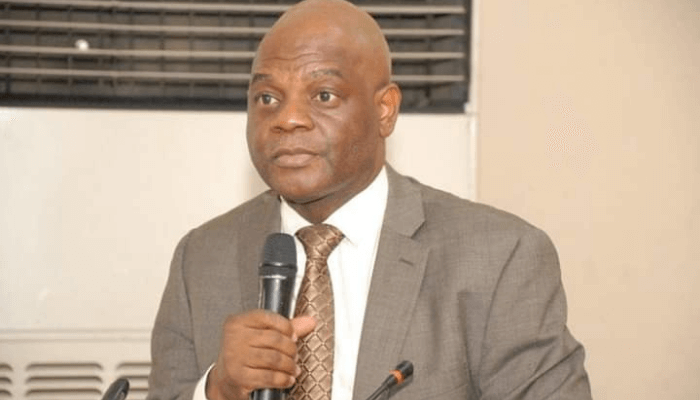The Tertiary Education Trust Fund (TETFund) is spearheading the future of innovation in Nigeria through its Research for Impact (R4i) initiative.
Launched in 2022, the R4i initiative is a collaborative effort between TETFund and Innov8 Hub, aimed at driving technological advancements, research, and innovation across Nigerian tertiary institutions.
The programme is designed to foster economic growth, address national challenges, and facilitate the commercialisation of research findings in Nigeria.
The core objectives of R4i include instilling a culture of innovation, empowering demand-driven research, and promoting the commercialisation of research outputs. By providing cutting-edge training, resources, and mentorship to researchers, academics, and innovators, TETFund is nurturing a new generation of problem-solvers.
These individuals are equipped to tackle some of Nigeria’s most pressing challenges, particularly in key sectors such as energy, healthcare, agriculture, and technology.
Through strategic collaborations and the establishment of Innovation Hubs, TETFund is shaping the landscape of innovation in Nigeria. These hubs are essential for fostering sustainable development and unlocking new opportunities for economic growth.
The most recent demonstration of the initiative’s success occurred at the closing ceremony of the 30th Cohort of the R4i initiative for polytechnics, which was held at Innov8 Technology Hub in Abuja where eleven teams presented their innovative prototypes, showcasing the tangible results of the initiative.
Among the diverse innovations, Team 1 from Port Harcourt Polytechnic presented Tri-energy Solutions, a hybrid system integrating solar, wind, and hydro energy to provide stable and sustainable power.
Team 2 from Kaduna Polytechnic showcased an automated water optimization device, aimed at improving agricultural water management.
Other presentations included Microchem, a wastewater treatment system by Auchi Polytechnic, and Rampo Kids, a nutrient-rich cereal designed to improve the nutrition of children under five by Ramat Polytechnic. Other notable innovations addressed issues like climate change, responsible consumption, and clean energy, all aligned with various Sustainable Development Goals (SDGs).
During the event, TETFund’s Executive Secretary, Architect Sonny Echono, emphasised the importance of education and research in nation-building.
He said the initiative is part of TETFund’s broader commitment to fostering problem-solving research, technological advancement, and entrepreneurship.
Echono announced that TETFund is establishing Innovation Hubs and Entrepreneurship Centres across Nigerian institutions in phases. The first phase of this intervention, he said will include twelve institutions, followed by additional phases to expand the reach of these hubs, providing ongoing support for participants as they mentor others.
Echono also acknowledged the remarkable progress of previous cohorts, some of whose innovations were exhibited at the maiden TETFund National Research Fair in November 2024.
He expressed confidence that the current cohort would continue to produce impactful solutions, underscoring the initiative’s role in empowering researchers to contribute meaningfully to society.
I am pleased to admit that the participants of previous cohorts of this initiative impressed us with their commitment during the training, which enabled them to come up with innovations in various areas of societal needs.
“Let me also acknowledge that some of the innovations from previous editions of this programme were exhibited at the maiden edition of the TETFund National Research Fair/Exhibition held in November 2024 in Abuja. I am sure that the participants from this particular cohort, whom we are gathered here to celebrate, will not be different as they showcase their innovative outputs.
“In line with the commitment of the Fund to provide the enabling environment for problem-solving research, TETFund is funding the establishment of Innovation Hubs and Entrepreneurship Centres in our beneficiary institutions in phases.
“The first phase will involve twelve (12) beneficiary institutions under the 2023 intervention year, the second phase will involve eighteen (18) institutions under the 2024 intervention, and the third phase will involve another eighteen (18) institutions under the 2025 intervention.”
In his remarks, Professor Idris M. Bugaje, Executive Secretary of the National Board for Technical Education (NBTE), stressed the importance of intellectual property protection, encouraging participants to patent their innovations and register trade names.
He pointed out that Nigeria’s heavy reliance on foreign products like cars and smartphones highlights the need for homegrown solutions.
Bugaje cited examples from Rwanda and Uganda, where local manufacturing and innovation are actively encouraged, and urged Nigerian polytechnics to lead the way in applying scientific principles to create products that can enhance Nigeria’s technological standing.
Bugaje also criticised Nigeria’s dependence on foreign technology and emphasized the importance of teamwork in developing locally-made products.
He encouraged polytechnics to take proactive steps, apply scientific laws, and create market-ready innovations that could help reduce Nigeria’s reliance on imported goods.
“I am very sure many of these innovations and ideas you have exhibited could be patented, because that’s the most important step in innovation. You must patent your ideas, discoveries, and innovations. Besides patents, if there are any names, I’ve seen many names mentioned in some of the programmes, you also need to do trade name registration.
“The challenge is on us today in Nigeria. Nigeria is among the top nations in terms of population, GDP, and many other criteria, including being number one in Africa. But today, Nigeria doesn’t have a technology that we can call Nigerian.
“We are holding Samsung products from Korea. We are driving cars made in Asia and Europe. You should lead Nigeria out of our present disabled condition. This training is very important because it’s exposing you to teamwork. This is what happens throughout the presentation.
“It is left for polytechnics to pick on those scientific laws, to apply them to practical life situations and bring products and gadgets as are being exhibited here today. So the challenge is on us today in Nigeria. Nigeria is among the top nations in terms of population, in terms of many other criteria, even GDP, we are number one in Africa,” he added.
In his closing remarks, Mr. Edward Singhatey, Director at Innov8 Hub, urged the participants to take the tools and knowledge they had acquired during the program back to their institutions.
He stressed the importance of sharing their learnings with students and fostering a culture of innovation.
Singhatey called for the commercialisation of research, emphasizing that Nigeria’s future progress depends on leveraging the country’s intellectual and technological resources.
As the R4i initiative continues to play a vital role in shaping Nigeria’s research and innovation ecosystem, TETFund’s commitment to providing resources, mentorship, and fostering collaboration between academia and industry ensures that these innovations can thrive and contribute to the nation’s long-term sustainable growth.





